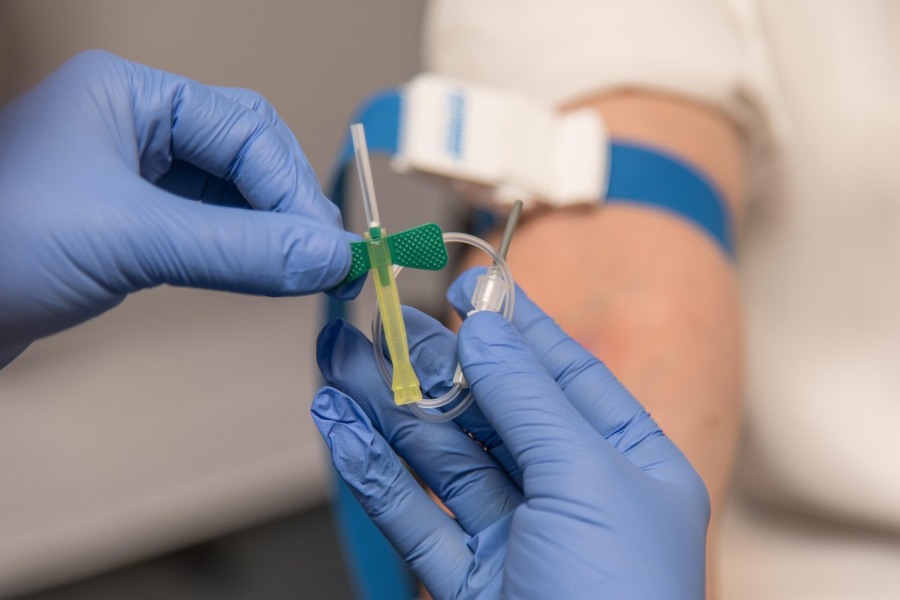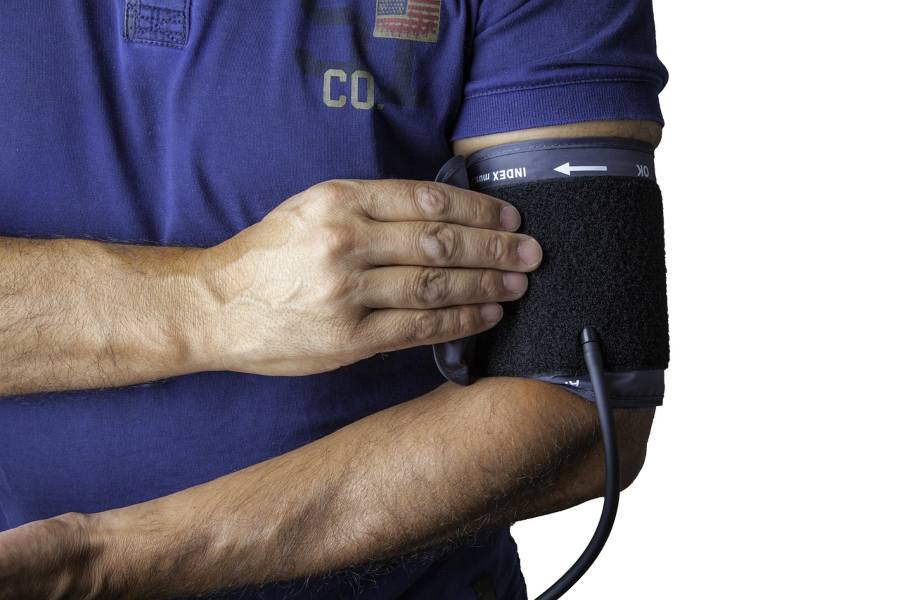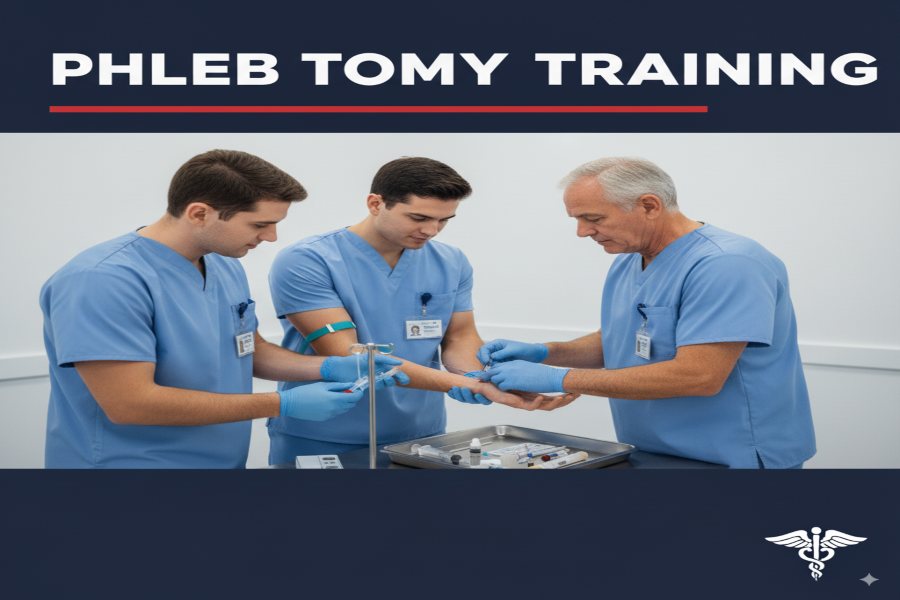Phlebotomy pays quick returns. You train fast. You step into healthcare with practical skills employers need. This guide walks you through everything: what you learn, how programs differ, costs, certification routes, hands-on requirements, job outlook, and how to pick the right course.
Why phlebotomy is a smart choice
Phlebotomy gives you a clear, practical entry into healthcare. Employers hire trained phlebotomists across hospitals, clinics, labs, donor centers, and mobile collection units. Training timelines stay short. Programs often run from weeks to months. Many roles start with little prior healthcare experience.
You touch patient care directly. You collect the samples clinicians need to diagnose and treat disease. That makes the role visible and valuable. The skill set stays in demand because testing never stops.
What phlebotomy training covers
Good programs balance three things: knowledge, technical skills, and professional practice.
Core knowledge
- Anatomy and physiology basics, especially the circulatory system.
- Blood composition and blood types.
- Reasons for common tests (CBC, chemistry panels, blood cultures).
Technical skills
- Venipuncture technique (multiple methods).
- Capillary (fingerstick/heelstick) collection.
- Correct tube selection, order of draw, and proper labeling.
- Specimen handling and transport rules.
- Sharps safety and biohazard disposal.
Safety and compliance
- Infection control and standard precautions.
- Patient identification and consent.
- Chain-of-custody for special tests.
- Documentation, reporting, and legal/ethical considerations.
Soft skills
- Communication and bedside manner.
- Managing anxious or difficult patients.
- Working in fast-paced environments.
Types of phlebotomy programs
Programs vary by format, depth, and credentials they prepare you for. Choose based on goals: quick knowledge, certification eligibility, or job-ready hands-on training.

Online theory courses
Online courses cover the classroom portion. They suit learners who need flexible study hours. They rarely include supervised venipuncture. Use them for theory, terminology, and exam prep. Alison’s free course offers strong theory content and an 80% passing threshold for assessments. It works great as a knowledge base.
Simulation + hybrid programs
These combine online lessons with a simulation kit or scheduled lab sessions. The kit might include a practice arm for venipuncture. Hybrid programs bridge the gap between theory and live patient practice. Penn Foster, for example, pairs online lessons with a venipuncture training kit and requires a 40-hour on-site externship. That combo prepares you for practical work and exam eligibility.
In-person and community-college programs
These programs run on campus and include supervised lab practice and clinical rotations. They often provide the most direct path to employment because you log real patient draws under supervision. Community colleges sometimes offer allied-health diplomas or certificates recognized by employers and cert bodies.
Trade schools and private clinics
Trade schools often advertise short timelines and job-placement help. Private clinics sometimes host training tied to employment. Always confirm the hands-on hours and externship quality.
Typical program length and structure
Programs range widely. Expect these common formats:
- Short certificate: 4–12 weeks (accelerated, mostly lab practice + theory).
- Diploma / career program: up to 6–12 months (deeper content, externship).
- Self-paced online: variable, often up to 12 months if you use all the pacing allowance.
Penn Foster lists up to 12 months for completion and includes 57.8 CEUs, a simulation kit, and a required 40-hour externship. That structure maps well to U.S. employability expectations.
Costs and what’s typically included
Costs vary. Expect a range from a few hundred dollars to over a thousand.
- Free or low-cost theory course: free (certificate optional for purchase). Alison offers no-charge enrollment; certificates cost extra.
- Mid-tier hybrid programs: $500–$1,500 (includes simulation kit and some externship assistance).
- Comprehensive diploma programs: $1,000–$3,000 (includes kit, externship coordination, and exam-prep).
Penn Foster lists tuition near $1,199 with a kit and first NHA exam attempt included. That makes budgeting more predictable when the program bundles the exam fee.
Certification options and why they matter
Employers prefer certified phlebotomists. Certification demonstrates standardized competence. The main certifying bodies in the U.S. include:
- NHA (National Healthcareer Association) — Certified Phlebotomy Technician (CPT).
- ASCP Board of Certification — Phlebotomy Technician (PBT) credential via ASCP.
- NCCT (National Center for Competency Testing).
- Other regional or state-recognized credentials.
Each cert body sets eligibility rules. Common requirements include a high school diploma or GED, completion of an accredited phlebotomy course, and documented clinical experience (sometimes measured in hours and successful blood draws). Confirm eligibility before you pay for a program. Programs that include exam-prep and a first attempt at an exam give you a clear end-to-end path. Penn Foster specifically includes the first attempt at the NHA CPT exam.
Hands-on practice: the non-negotiable
Phlebotomy is tactile. No amount of theory fully substitutes for live draws. Employers expect demonstrated competence. Your checklist for hands-on training:
- Supervised venipunctures on live patients.
- Logged successful draws (many certs request a minimum number).
- Simulated practice with realistic arms or models.
- Clinical externship in a lab or hospital setting.
If a course lacks supervised venipuncture and a clinical rotation, treat it as theory-only and plan an extra, local practical course. Alison’s course provides solid theory but does not advertise supervised live venipuncture. Pair it with a hands-on program if you want work readiness.
Externships and clinical rotations
Externships convert training into employable experience. A 40-hour externship gives you exposure to real workflows: patient prep, order processing, draw pace, specimen routing, and documentation.
Tips for a successful externship:
- Confirm placement help before you enroll. Good programs coordinate placements and follow up. Penn Foster claims coordination for externships.
- Prepare required documents early: immunizations, background checks, and CPR proof.
- Treat the externship like a job interview: dress professionally, show punctuality, and ask to perform tasks under supervision.
- Track and log your procedures diligently. Many cert exams require documented draws.
How to choose the right program — a practical checklist
Use this checklist to compare programs quickly.
- Hands-on hours — Does the program guarantee supervised venipuncture? How many live draws?
- Externship — Does it include coordinated externship placement? How long?
- Certification support — Does tuition include exam prep and the first exam attempt? Which cert body does it map to?
- Accreditation/recognition — Is the program recognized by relevant agencies or employers?
- Cost breakdown — What does tuition cover? Kits, exam fees, placement fees?
- Graduate outcomes — Does the provider publish pass rates or employment placement stats?
- Scheduling — Is the format compatible with your life? Self-paced, cohort-based, evening labs?
- State rules — Check state-specific rules if you live in a state with licensure or special requirements.
Programs that score well on items 1–3 give you the fastest route to work.
A sample pathway you can follow (theory → practice → certification)
- Complete a robust online theory course (for example, a free or low-cost course like Alison to build vocabulary and concepts).
- Enroll in a hybrid or diploma program that includes simulation and an externship (for example, Penn Foster’s model with a kit and a 40-hour externship).
- Log required draws during your externship. Practice capillary and venipuncture techniques under supervision.
- Take certification exam prep modules and schedule the cert exam. Use the program’s included exam attempt if available.
- Apply to entry-level phlebotomy roles with your certificate, logged clinical hours, and cert body credential.
This pathway keeps costs reasonable while building a complete skill set employers trust.
Preparing for the certification exam
Preparation matters. Treat exam study like a two-part system: knowledge and performance.
Knowledge tips
- Master blood collection theory: order of draw, anticoagulants, common lab tests.
- Drill terminology and basic anatomy.
- Use practice quizzes. Many programs provide exam-style questions.
Performance tips
- Practice tourniquet placement, site selection, and needle angle repeatedly on models.
- Time yourself: many exams include timed components or evaluate efficiency.
- Rehearse patient interaction scripts: identification, consent, and post-collection instructions.
If your program bundles the first exam attempt, use that window to identify weak areas and retake only if necessary.
Clinical skills checklist — what you must master
Before you apply for jobs or certification, confidently demonstrate these skills:

- Verify patient ID using two identifiers.
- Explain the procedure and obtain consent.
- Apply the tourniquet correctly.
- Select vein and angle for venipuncture.
- Use the correct tube type and follow the order of draw.
- Label specimens correctly at bedside.
- Handle specimens for transport without contamination.
- Manage complications like fainting or hematoma.
- Dispose of sharps properly and apply post-draw care.
Log each successful draw as your program or cert body requires.
Infection control and safety
Follow standard precautions every time. Use gloves, protect against needlestick injuries, and follow OSHA/Bloodborne Pathogens training where applicable. Programs teach safe disposal, surface decontamination, and incident reporting. These rules protect you and patients.
Documentation, chain-of-custody, and legal basics
Accurate documentation prevents errors. Label tubes at the bedside. Follow chain-of-custody rules for forensic or legal specimens. Understand patient privacy and HIPAA rules if you work in the U.S. Employers expect reliable documentation skills as much as technical ability.
Soft skills — patient communication and professionalism
You will draw blood from nervous people, children, and the elderly. Build these habits:
- Use calm, clear language.
- Maintain eye contact and explain steps simply.
- Use distraction techniques for children.
- Respect cultural preferences and privacy.
- Show empathy. One reassuring sentence can change the whole experience.
Soft skills improve patient yield and reduce redraws.
Job outlook, salary, and demand
Phlebotomy jobs remain steady. Penn Foster’s program page cites an average salary near $43,660 per year and projects about 141,200 jobs with an 8% growth rate. That matches broader health-labor trends: testing needs sustain demand for trained collectors.
Earnings vary by location, setting, and shift. Hospitals and specialized labs often pay more. Higher experience and additional certifications also increase earning potential.
Career progression and continuing education
Phlebotomy can lead to several career steps:
- Advance to lead phlebotomist or supervisor roles.
- Cross-train into medical assistant or laboratory technician positions.
- Pursue allied-health diplomas or associate degrees for lab sciences.
- Earn specialty certifications for blood bank or phlebotomy instructor roles.
Continuing education helps you stay current. Some cert bodies require periodic CEUs to keep credentials active.
Common mistakes to avoid
- Skipping supervised practice. Theory without practice leaves you unprepared.
- Choosing the cheapest program without checking hands-on hours.
- Neglecting externship coordination and documentation.
- Assuming all certifications transfer across states without checking rules.
- Underestimating soft skills; poor bedside manner leads to redraws and complaints.
Avoid these and you will accelerate your readiness.
Frequently asked questions (brief)
Do I need a degree to be a phlebotomist?
No. Most employers accept certificate or diploma training with documented clinical hours.
Can I train online only?
You can learn theory online. You must complete supervised practical training to become job-ready and to meet most cert requirements.
How long before I can work?
You can enter the workforce in a few weeks with basic certificates, but certified, job-ready pathways typically take 2–6 months or up to a year for more comprehensive diplomas.
Which certification should I choose?
Choose a cert recognized by local employers. NHA and ASCP both hold wide recognition. Match the cert to your career goals and state rules.
Will my course help me find a job?
Better programs offer placement assistance and externships. Programs that include externship coordination and exam prep increase your chances.
Final checklist before you enroll
- Confirm supervised venipuncture and externship details.
- Verify what the tuition includes (kit, exam fees, placement).
- Check cert body eligibility and state licensing rules.
- Ask for graduate pass rates or placement stats.
- Prepare documents: immunizations, CPR, background check.
- Plan time for hands-on practice and logging draws.
Closing — practical and direct
Phlebotomy training gives you a fast, practical path into healthcare. Theory matters, but practice makes you employable. Pair a thorough online course with a program that guarantees supervised draws and an externship. Check certification routes early. Budget for the full path: tuition, kit, externship needs, and exam fees.
If you want, I can now:
- compare two programs side-by-side (Alison vs Penn Foster) with a short pros/cons table and sample costs; or
- list three community colleges or hands-on programs near your city that match this pathway.
Say which and I’ll pull it together. (No need to repeat your city; I already have it if you’ve shared it in past messages.)

